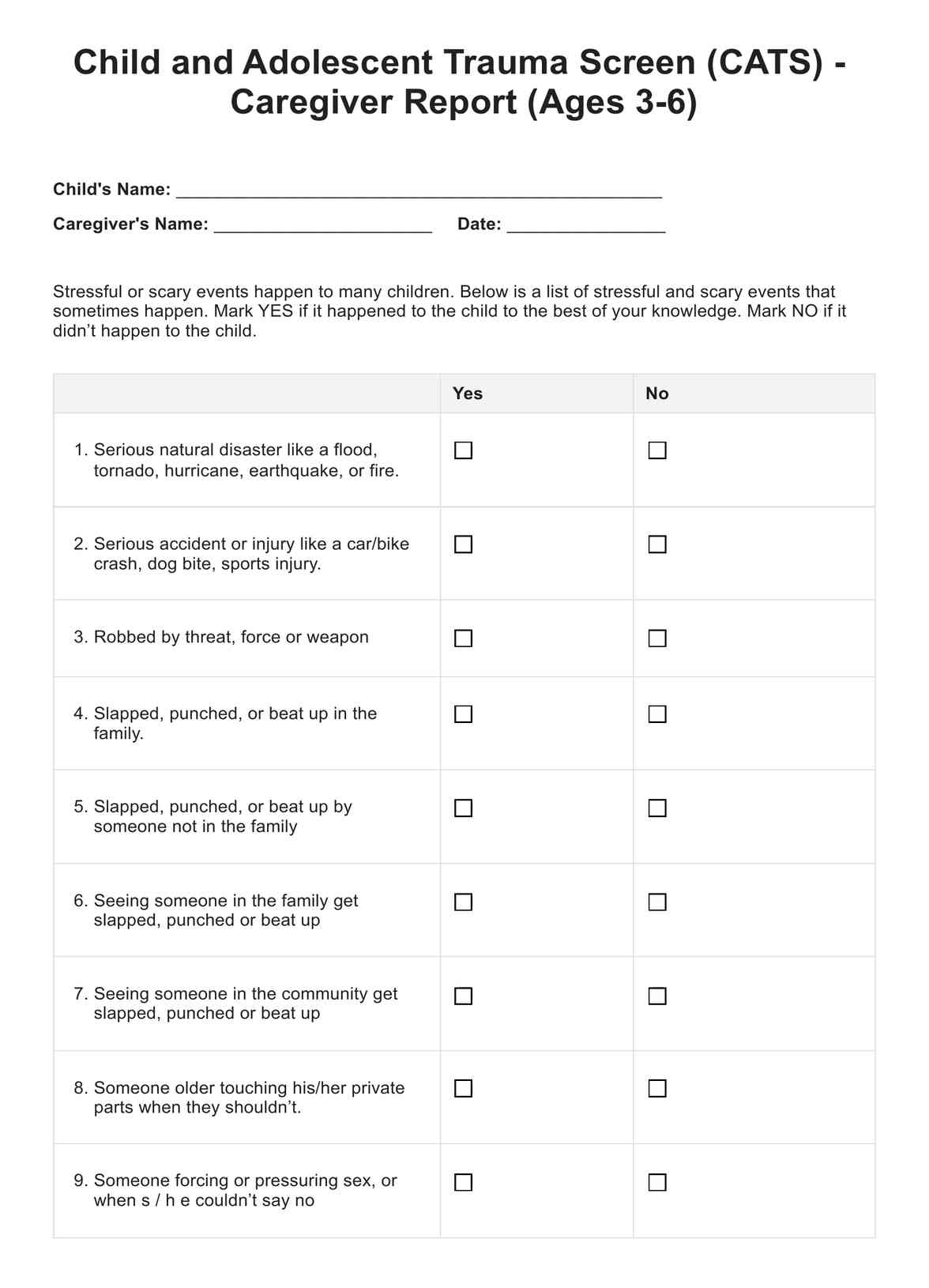Interpretation should be performed by trained healthcare professionals, considering the overall context of the child's situation.

Child and Adolescent Trauma Screen (CATS) - Caregiver Report (Ages 3-6 years)
Discover the Child and Adolescent Trauma Screen (CATS) - Caregiver Report (Ages 3-6 years) guide. Learn about the assessment, its application, its benefits, and more.
Use Template
Child and Adolescent Trauma Screen (CATS) - Caregiver Report (Ages 3-6 years) Template
Commonly asked questions
It is used when there is a concern about trauma symptoms or after known exposure to a traumatic event.
If they are adequately trained, healthcare professionals such as therapists, psychologists, counselors, and even teachers or pediatricians may use this assessment.
EHR and practice management software
Get started for free
*No credit card required
Free
$0/usd
Unlimited clients
Telehealth
1GB of storage
Client portal text
Automated billing and online payments











